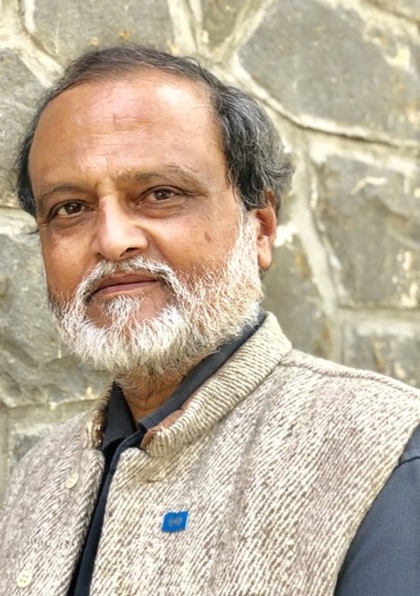SCCN Blogs
Question that has embedded in it an Answer
Young Leo , one of the interns of the International E-Internship Programme, launched by TERRE Policy Centre,asked a simple question that itself embedded a hidden solution to world's most pressing and clamouring challenge. How to feed, soon to be, 9 billionhumanity without ravaging our planet's ecosystem?
Remember 'Malthusian Trap'?Thomas Malthus, the mostrenowned economist who linked demography to the food production, two centuries back, wrote in the essay on the principle of population that set this trap. Malthus considered that population growth is inevitable till well-being of the populace is not fully achieved. Till then populations had a tendency to grow . Then comes a point that the lower class starts suffering hardship, famine and greater susceptibility for health crisis.
Number of people affected by food insecurityare 2 billion and number ofhungry people in the world are around820 million . At the same time, number of overweight people in the world are nearly 2 billion and number of obese are nearly 800 million, all as per FAO data.
"Don't we have answer to my question?', Leo asked when he presented his assignment as part of the internship-submission. Yes, I responded as a mentor to the internship programme. The gross inequality of the worlddefinitely provides the seeds for the solution. Rest depends on how the consumer behaves.
In addition, consider that more than 30 per cent of the food produced in the fields of the developing country is wasted due to inadequate storage, reckless transport and shaky distribution process till it reaches the food bowl or plate of the consumer.
And equal percent or even more than 30 percent of the food produced in the developed countries is wasted in the plates after part goes in the stomach of the consumer. Do not we have the immediate solution to the prime question , how to feed soon to be 9 billion humanity ( just about 20 percent increase from now) without ravaging our planet's ecosystem?
Paradoxically, the solution to the food-challenge of 21st century lies outside the farmers' fields. That would be shocking to many. The solution lies with the society that does not do farming. Intellectual economists that keep quoting that 70 percent of the population in India is engaged in agriculture that contributes to 17 percent of GDP of India are probably more engaged in theory than taking action on consuming balanced food in right quantity and not wasting it in their plates. Icons and celebrities of automobile industry, IT businesses would be be busy in calculating their contribution to GDP and keep overeating and wasting the food that they probably believe comes from 'supermarket'.
Smart Campus Cloud Network -SCCN- a flagship project of TERRE Policy Centre (see: sccnhub.com) recently held virtual interaction of the Vice-Chancellors of Agricultural universities to debate above questions and answers. The interaction revealed that there are many more prime-time transformational ideas that can be implemented to make farmer on top of the pyramid of national wealth. Farmers of course should harvest but they can also harness the energy, heighten the nutrients and help in nurturing live-stock including cattle to double their income by 2024 -a dream cherished by our PM Narendra Modi.
The takeaway from interaction with practicing Vice Chancellors was that -Agricultural universities are the connecting catalyst between the source where food is getting produced and where it is getting consumed.
Leo's solutions embedded in his question would be starting point for our network with agricultural universities.
END
About the Author
Rajendra Shende Chairman
Chairman TERRE Policy Centre, former Director UNEP
Email :
Contact : +918975657235.
When you subscribe to the blog, we will send you an e-mail when there are new updates on the site so you wouldn't miss them.






Comments